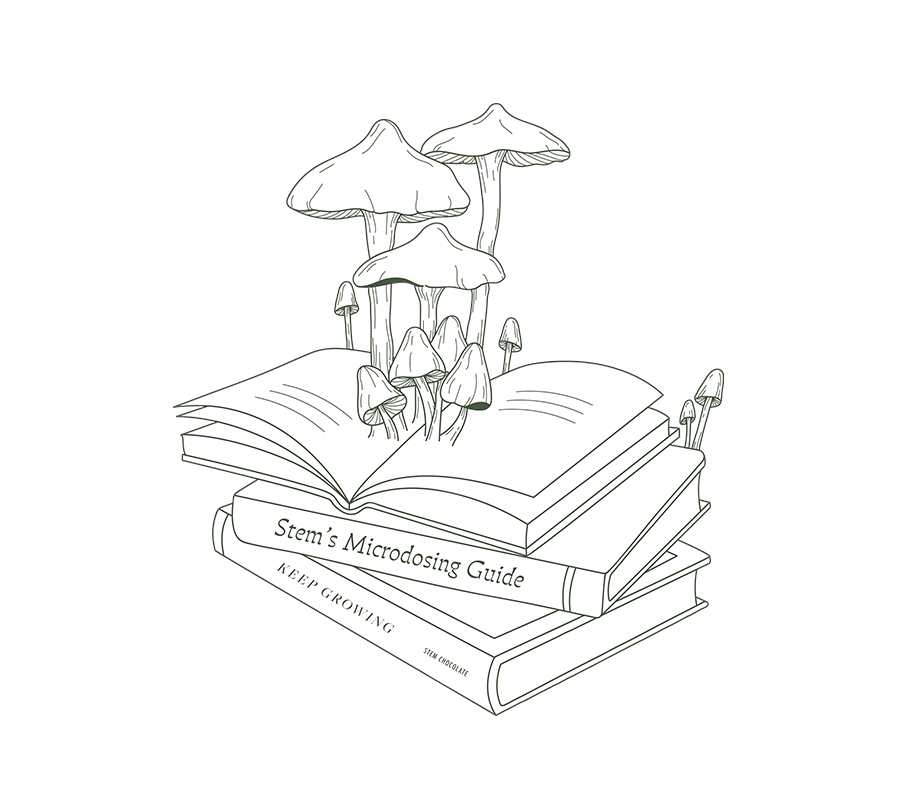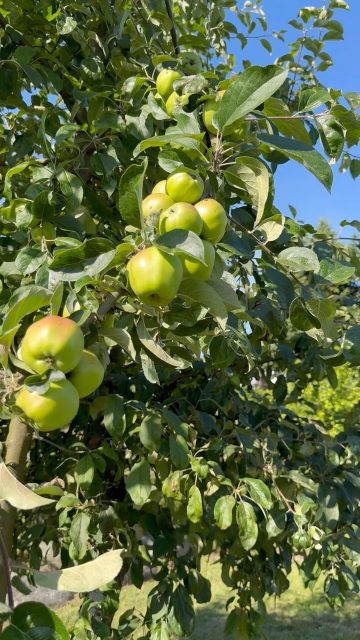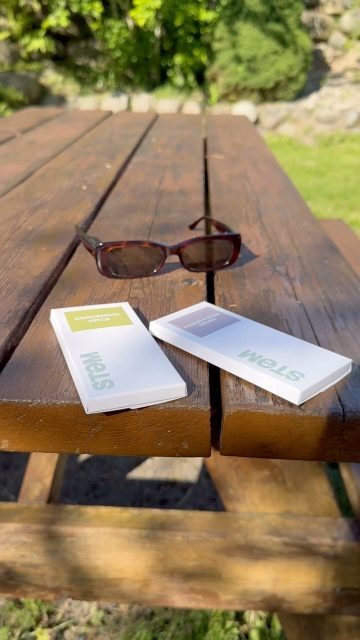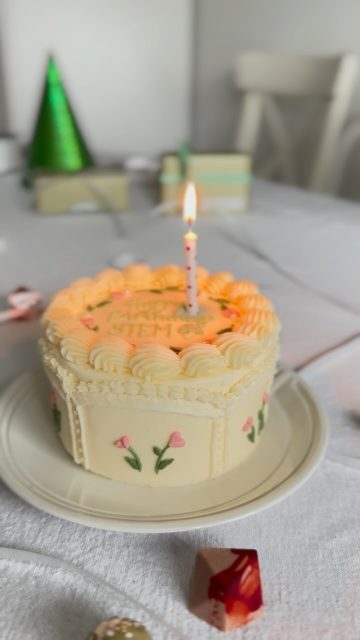Microdosing with mushrooms is a growing trend in the world of alternative medicine and wellness. It involves taking small, sub-perceptual doses of psychedelic mushrooms to experience its potential benefits without the intense hallucinogenic effects. This practice has gained popularity, with many people claiming positive effects on their mood, cognition, and overall well-being.
Microdosing with mushrooms works by consuming a fraction of the usual dose of psychedelic mushrooms, typically 1/10 or 1/20 of a full dose. This small amount is not enough to cause a full hallucinogenic experience but can still have subtle effects on the body and mind. The active ingredient in mushrooms, psilocybin, interacts with serotonin receptors in the brain, leading to changes in perception, mood, and cognition.
The potential benefits of microdosing with mushrooms include improved focus, creativity, emotional stability, and increased energy. Some evidence suggests that it may also have therapeutic effects for mental health conditions such as depression, anxiety, and PTSD. However, more research is needed to confirm these claims.
Like any drug, there are potential risks associated with microdosing with mushrooms. These include adverse reactions, increased anxiety or paranoia, and the possibility of triggering or worsening mental health conditions. It is essential to consult with a healthcare professional before starting this practice and to proceed with caution.
To microdose with mushrooms, one must first obtain them from a trusted source. They can then be ground into a powder and measured into small doses, usually taken every few days for a period of a few weeks. The recommended dosage for microdosing with mushrooms is typically between 0.1-0.2 grams, but it may vary depending on the individual’s tolerance and desired effects.
The effects of microdosing with mushrooms can vary from person to person, but some common effects include increased focus, creativity, and emotional stability. Studies have also shown potential for improved mood and cognition, though more research is needed to confirm these findings.
It is essential to note that microdosing with mushrooms, including options like microdose mushroom chocolate, should not be seen as a replacement for therapy or medication. While it may have potential therapeutic benefits, it should always be done under the guidance of a healthcare professional and in conjunction with other forms of treatment. Additionally, it is crucial to understand the legal implications of microdosing with mushrooms, as they are still classified as a Schedule I drug in many countries.
What Is Microdosing With Mushrooms?
Microdosing with mushrooms is a practice that involves taking small, sub-perceptual doses of psychedelic mushrooms for therapeutic or cognitive enhancement purposes. This method has gained popularity in recent years and is believed to offer subtle benefits, such as increased focus, creativity, and mood enhancement, without producing the full psychedelic effects. However, it is crucial to note that microdosing should be approached responsibly and with the guidance of a healthcare professional.
It is also important to obtain mushrooms from a reliable and trusted supplier. Pro-tip: It is recommended to start with a low dose and keep a journal to track the effects and any potential benefits.
How Does Microdosing With Mushrooms Work?
Microdosing with mushrooms involves taking small, sub-perceptual doses of psychedelic mushrooms. Here are the key steps to understand how it works:
- Preparation: Start with a reliable source of mushrooms and ensure they are properly dried.
- Dosing: Take a tiny dose, typically around 0.1-0.3 grams, every few days. This dosage is low enough to avoid hallucination or impairment.
- Effects: The effects are subtle and may include improved mood, creativity, focus, and reduced anxiety.
- Routine: Establish a consistent schedule to maintain the benefits and avoid tolerance.
- Self-reflection: Pay attention to your experiences and track any changes in mood, productivity, or overall well-being.
To get the most out of microdosing, it’s important to create a supportive environment, maintain a healthy lifestyle, and combine it with other practices like meditation or journaling. Remember, always research and approach microdosing responsibly and consult with a healthcare professional if needed.
What Are the Benefits of Microdosing With Mushrooms?
Microdosing with mushrooms has been linked to a variety of potential benefits. Studies have suggested that microdosing can improve mood, creativity, focus, and productivity. It may also promote feelings of connectedness, mindfulness, and self-awareness. Some individuals have even reported increased energy levels, reduced symptoms of anxiety and depression, and improved cognitive function. However, it’s important to note that these benefits are based on personal experiences and more scientific research is needed to validate them. It’s also important to recognize that microdosing can have risks and may have negative effects on certain individuals. If considering microdosing, it’s crucial to consult with a healthcare professional and be aware of the legal implications.
In fact, microdosing with mushrooms is a growing trend among those seeking alternative approaches to improving mental well-being.
What Are the Risks of Microdosing With Mushrooms?
There are certain risks associated with microdosing with mushrooms that should be carefully considered. These include potential negative impacts on mood, cognition, and mental health. While some individuals may have positive experiences, others may experience unpleasant effects such as anxiety, paranoia, or hallucinations.
Furthermore, the long-term effects and safety of microdosing with mushrooms are not yet fully understood due to limited scientific research. It is also important to keep in mind that the legality of microdosing with mushrooms may vary depending on the jurisdiction. Therefore, it is important for individuals to exercise caution and seek professional guidance before engaging in microdosing with mushrooms to minimize any potential risks.
How Do You Microdose With Mushrooms?
Interested in microdosing with mushrooms? Here is a step-by-step guide on how to safely and effectively experience subtle effects without hallucinations:
- Find a reliable source for high-quality mushrooms.
- Start with a low dose, typically around 0.1 to 0.3 grams of dried mushrooms.
- Grind the mushrooms into a fine powder.
- Using a digital scale, measure out the desired dose.
- Consume the measured dose in the morning, every few days, or on a schedule that works for you.
- Keep a journal to track your experiences and any effects you notice.
Pro-tip: Keep in mind that everyone’s tolerance is different, so it’s important to start with a low dose and adjust accordingly. Prioritize safety and consider consulting with a healthcare professional if needed.
What Is the Recommended Dosage for Microdosing With Mushrooms?
The recommended dosage for microdosing with mushrooms varies depending on the individual and the specific strain of mushrooms being used. However, a typical microdose of psilocybin mushrooms is typically between 0.1 and 0.5 grams, taken every few days or on a schedule of 1-2 days on and 1-2 days off. It is important to begin with a low dose and gradually adjust to find the optimal dosage for desired effects. Remember to always consult with a healthcare professional before starting any microdosing regimen.
The practice of microdosing with mushrooms has gained popularity in recent years, but its origins can be traced back to ancient cultures. Indigenous tribes in the Americas have used mushrooms for therapeutic and spiritual purposes for centuries. Today, ongoing scientific research is uncovering the potential benefits of microdosing, including improved mood, creativity, and focus. As more studies are conducted, our understanding of the recommended dosage and effects of microdosing with mushrooms continues to evolve.
What Is the Best Time and Frequency for Microdosing With Mushrooms?
To determine the optimal time and frequency for microdosing with mushrooms, it is important to take into account individual factors and objectives. While there is no one-size-fits-all solution, a popular approach is to follow the Fadiman Protocol. This involves taking a microdose every three days, with two days of rest in between. Typically, the best time to take a microdose is in the morning, as it can lead to increased focus and productivity throughout the day. However, some individuals may prefer different times based on their schedules or personal preferences. Experimentation and self-awareness are key in finding the perfect time and frequency for microdosing with mushrooms.
What Are the Effects of Microdosing With Mushrooms?
Microdosing with mushrooms involves consuming a small amount of psychedelic mushrooms in order to experience subtle effects without any hallucinations. These effects can vary from person to person, but some commonly reported benefits include:
- Increased creativity
- Improved mood
- Enhanced focus
- Reduced anxiety
It’s worth noting that the effects of microdosing may be affected by factors such as the amount consumed, individual brain chemistry, and the specific strain of mushrooms used. A helpful tip is to start with a low dosage and keep a journal to track your experiences and determine the optimal amount for your personal needs.
How Does Microdosing With Mushrooms Affect Mood and Cognition?
Microdosing with mushrooms has been praised for its potential effects on mood and cognition. Here are the steps involved in comprehending its impact:
- Begin with a low dose: Typically, microdosing involves taking a sub-perceptual dose, which is about 1/10th to 1/20th of a regular dose.
- Observe changes in mood: Pay attention to any shifts in mood, such as increased positivity, creativity, or reduced anxiety.
- Evaluate cognitive effects: Notice if there are improvements in focus, productivity, or problem-solving abilities.
- Keep a journal: Document your experiences to track any patterns or fluctuations in mood and cognition.
- Consult a professional: If you have any concerns or want to explore microdosing further, seek guidance from a qualified healthcare professional.
Understanding the impact of microdosing with mushrooms on mood and cognition is an ongoing area of research, and individual experiences may vary.
Can Microdosing With Mushrooms Help with Mental Health Conditions?
Can Microdosing With Mushrooms Help with Mental Health Conditions? Research has shown that microdosing with mushrooms may have potential in aiding individuals with mental health conditions. Although there is limited research, anecdotal evidence has suggested positive outcomes for individuals struggling with depression, anxiety, and PTSD.
The active compound in magic mushrooms, psilocybin, has been found to interact with serotonin receptors in the brain, which could potentially promote neuroplasticity and improve mood and cognition. It is important to note, however, that microdosing should not be used as a replacement for traditional therapy and should only be done under the supervision of a medical professional. It is recommended to consult with a healthcare professional before considering microdosing, as they can provide personalized guidance based on your specific mental health needs.
What Are the Different Types of Mushrooms Used for Microdosing?
Microdosing involves taking small doses of various types of psychedelic mushrooms to experience subtle effects. These mushrooms each have unique properties and characteristics that should be researched and understood before microdosing. Some examples of mushrooms used for microdosing include:
- Psilocybe cubensis: This mushroom is commonly used due to its availability and moderate potency.
- Psilocybe semilanceata: Also known as “Liberty Caps,” these mushrooms are often preferred for their higher potency.
- Psilocybe cyanescens: These mushrooms are known for their strong effects and are typically used by experienced microdosers.
- Psilocybe baeocystis: This type of mushroom has a higher concentration of psilocybin and is favored by some microdosers.
What Are the Differences Between Magic Mushrooms and Other Types of Mushrooms Used for Microdosing?
Magic mushrooms, also known as psilocybin mushrooms, are just one type of mushroom that is commonly used for microdosing. However, there are other types of mushrooms that are also used for this purpose. The main distinction lies in the different psychedelic compounds that they contain. While magic mushrooms contain psilocybin, which is responsible for their hallucinogenic effects, other types of mushrooms used for microdosing may contain compounds such as lion’s mane or reishi, which are known for their potential cognitive and mood-enhancing effects. It is important to thoroughly research and understand the specific effects and benefits of each type of mushroom before deciding which one to use for microdosing.
What Are the Legal Implications of Microdosing With Mushrooms?
Microdosing with mushrooms can have legal implications that vary depending on the jurisdiction. While some countries, like Brazil and Jamaica, have legalized or decriminalized the use of certain psychedelic substances, others, including the United States and most of Europe, have laws against the possession, sale, or cultivation of psychedelic mushrooms. Engaging in microdosing with mushrooms in these regions could result in legal consequences, such as fines or imprisonment. It is crucial to thoroughly research and understand the laws and regulations in your country or state regarding the use of psychedelic substances before considering microdosing with mushrooms.
How Do Scientific Studies on Microdosing With Mushrooms Work?
Scientific studies on microdosing with mushrooms follow a systematic process to gather reliable data. Here are the steps involved:
- Formulating a research question: Scientists identify specific questions they want to answer through the study.
- Designing the study: Researchers plan the study, including the sample size, duration, and experimental setup.
- Recruiting participants: Individuals who meet the study criteria are selected and informed about the purpose and risks involved.
- Administering the microdoses: Participants receive carefully measured doses of mushrooms or placebos under controlled conditions.
- Collecting data: Researchers record any physical, psychological, or cognitive changes experienced by the participants during the study.
- Analyzing the results: The collected data is analyzed to determine the effects of microdosing and to draw conclusions.
- Peer review and publication: The findings are shared with the scientific community through peer-reviewed journals for further evaluation and replication.
In a recent study, researchers found that microdosing with mushrooms led to improved creativity and reduced symptoms of depression in some participants. These findings provide valuable insights into the potential benefits of microdosing and encourage further exploration in this field.
What Are the Limitations of Current Scientific Research on Microdosing With Mushrooms?
The limitations of current scientific research on microdosing with mushrooms are quite notable. Firstly, the majority of studies conducted on this topic have been small-scale and lack rigorous methodologies, making it challenging to draw definitive conclusions about the effects and safety of microdosing. Additionally, there is a lack of standardized protocols for dosing and duration, leading to inconsistencies across studies. Furthermore, most research relies on self-reporting, which may introduce bias and inaccuracies. Lastly, the long-term effects and potential risks of microdosing remain largely unknown. Therefore, further large-scale, controlled studies are necessary to address these limitations and provide more comprehensive insights into microdosing with mushrooms.
What Are the Future Avenues for Scientific Research on Microdosing With Mushrooms?
Future avenues for scientific research on microdosing with mushrooms include exploring its long-term effects, conducting controlled clinical trials, and investigating its potential therapeutic applications. Researchers aim to understand the mechanisms of action and identify specific compounds responsible for the observed effects. Additionally, more studies are needed to determine optimal dosing regimens, assess safety profiles, and evaluate potential interactions with other medications.
The future research may also focus on identifying biomarkers to predict individual response and developing standardized protocols for microdosing. By addressing these areas, future scientific studies can provide a more comprehensive understanding of the potential benefits of microdosing with mushrooms.
What Are the Different Perspectives on Microdosing With Mushrooms?
The topic of microdosing with mushrooms is highly debated, with varying viewpoints on its potential benefits and risks. Supporters claim that it can boost creativity, improve mood, and enhance focus, often citing personal experiences as evidence. Some researchers also suggest that it could have therapeutic benefits for mental health conditions. However, critics warn against the lack of scientific evidence and potential negative effects, such as anxiety or psychosis.
It is important to note that microdosing is considered illegal in many countries and should only be pursued with professional guidance. It is a fact that there is limited research on the effectiveness and safety of microdosing with mushrooms, and further studies are necessary to fully understand its impact.
Frequently Asked Questions
What is Microdosing with Mushrooms and How Does it Work?
The practice of microdosing with mushrooms involves taking small doses of psilocybin-containing mushrooms, often referred to as “magic mushrooms.” These doses are sub-hallucinogenic and are usually around 0.2-0.5 grams, which is significantly lower than a recreational dose. This practice is believed to have potential benefits for enhancing mental function, creativity, problem-solving skills, and mental concentration. It works by binding to serotonin receptors in the brain, leading to changes in brain function and altering one’s perception and behavior.
What Are Some Potential Benefits of Microdosing with Mushrooms?
Microdosing with mushrooms has gained attention for its potential benefits, including improved mood, focus, and creativity. It may also have potential therapeutic applications, such as treating treatment-resistant depression. Some anecdotal reports also suggest benefits for problem-solving skills and mental concentration.
What Are the Challenges Associated with Microdosing with Mushrooms?
While some individuals report positive effects, there can also be challenges associated with microdosing with mushrooms. These challenges include physiological discomfort, increased anxiety, and potential adverse effects. Additionally, as microdosing gains popularity, there is a lack of reliable suppliers and limited research on its effects.
What Is the Current State of Scientific Research on Microdosing with Mushrooms?
Microdosing with mushrooms is a relatively new area of research, and there is still limited scientific literature available. Most studies have been conducted in laboratory settings or through online surveys, using mixed methods for data collection. While some studies have reported potential benefits, there is a lack of placebo-controlled studies and reliable data on the long-term effects of microdosing.
What Are the Potential Risks of Microdosing with Mushrooms?
As with any substance, there are potential risks associated with microdosing with mushrooms. These risks include potential cognitive impairment, physiological tolerance, and substance-dependent differences in reported benefits. Additionally, without proper education and guidance, there is a risk of misusing or abusing microdosing, which can lead to adverse effects.
Is Microdosing with Mushrooms Legal and Safe?
The legality and safety of microdosing with mushrooms vary depending on the country or state. In some places, all forms of psilocybin-containing mushrooms are illegal, while in others, they may be decriminalized or allowed for medical use in clinical settings. As for safety, while there is limited research on the effects of microdosing, anecdotal reports and some preliminary studies suggest it may be relatively safe if used responsibly and with proper guidance.













